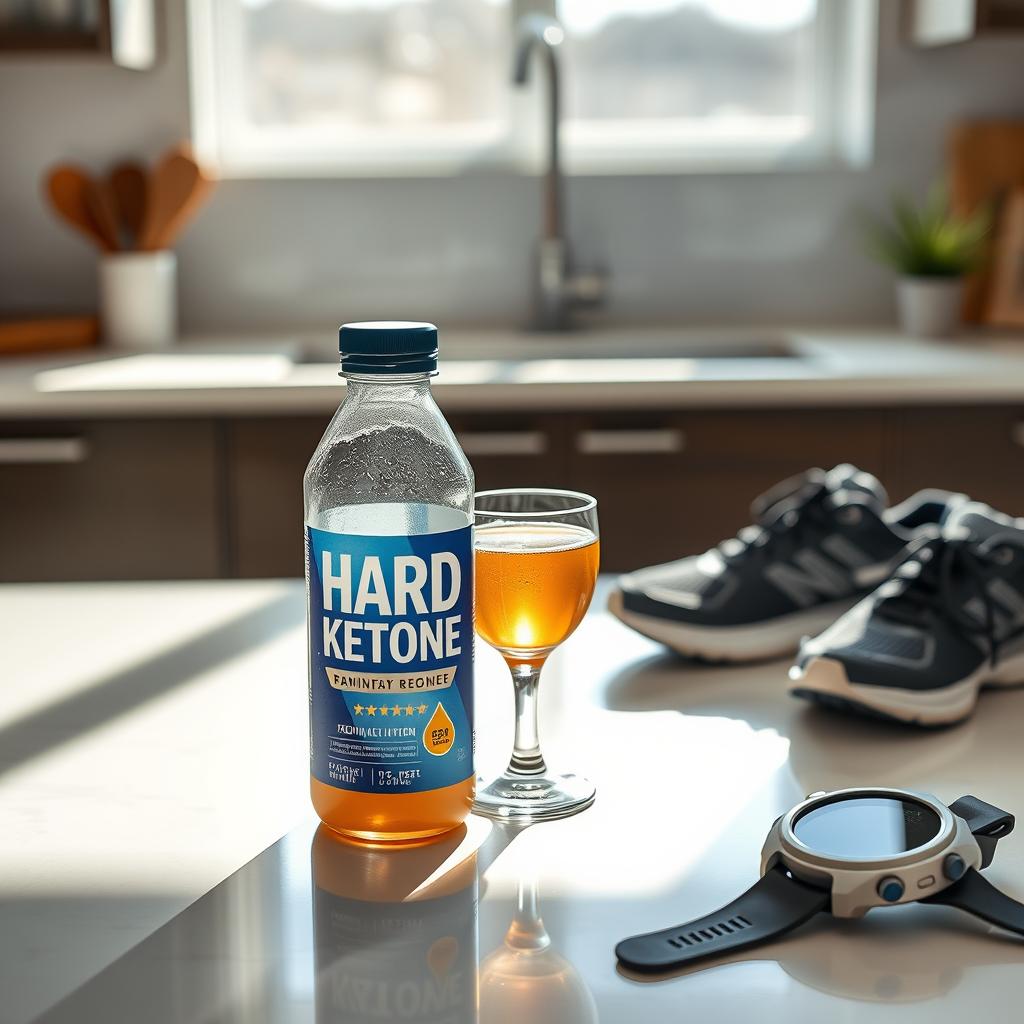However, the science behind these claims is far from unanimous. Studies have delivered mixed results, with some pointing to marginal improvements in endurance or recovery times, while others argue the effects are negligible. The debate extends into the realm of commercialization: Are athletes paying premium prices for a placebo effect wrapped in clever marketing?
- Potential Benefits:
- Improved endurance in sports requiring prolonged energy output
- Enhanced recovery by supporting glycogen stores
- Challenges:
- High costs and skepticism about tangible outcomes
- Limited evidence supporting bold performance claims
Ultimately, while Hard Ketones and other exogenous ketone drinks present an intriguing option, unraveling their true impact requires a closer look at emerging research and a healthy dose of skepticism. For now, the jury is still out.
What are Hard Ketones and Exogenous Ketone Supplements?
Hard Ketones drinks, the latest buzz in this niche, further amplify the appeal. Marketed as an easy to consume solution, they blend ketone esters with beverages to create a potentially ergogenic boost for athletes. The promised benefits are tempting: improved endurance, enhanced metabolism, and faster recovery. But how do they stack up?
- Inducing ketosis: These supplements bypass traditional dieting by directly increasing blood ketone levels.
- Alternative energy source: They shift the body’s energy reliance from carbohydrates to fats, which could optimize fueling during prolonged exercise.
- Supposed performance perks: Advocates highlight subtle gains in endurance and post workout recovery.
While Hard Ketones drinks market themselves as a modern fueling strategy, it’s crucial to remember that scientific evidence is still mixed. How they interact with traditional carbohydrate intake or whether their benefits justify the cost remains a hot topic within the fitness and science communities. So, could this be your new secret weapon? Only time (and more research) will tell.
How Do Hard Ketones Potentially Impact Athletic Performance?
Have you ever wondered if exogenous ketones like hard ketones could truly elevate athletic performance? Advocates of these supplements highlight their ergogenic effects during exercise, including enhanced energy utilization, improved endurance, and faster recovery. But how exactly do they achieve this, and does science back the hype?
At the core of these claims is the role ketones play in altering substrate metabolism. When consumed, ketones can shift your body toward using fat as its primary energy source, sparing glycogen stores for extended activity. This can be especially intriguing for athletes tackling endurance focused sports, where energy efficiency is paramount. Additionally, ketones produce energy more cleanly compared to carbohydrates, avoiding spikes in blood sugar while reducing the production of reactive oxygen species (ROS).
Curious about the effects when paired with carbs? Research suggests that combining ketones with carbohydrates may result in a synergistic impact, promoting sustained energy during high intensity exercise and potentially speeding up recovery post workout. This could be a game changer for athletes looking to optimize their performance through innovative fueling strategies.
- Enhanced energy pathways: Ketones provide an alternative fuel source, reducing reliance on glycogen.
- Improved endurance: By altering substrate metabolism, ketones may help extend physical performance.
- Synergistic effects: Ketones and carbohydrates together may improve both performance and recovery.
While the science is promising, the evidence remains mixed, leaving us to question: are hard ketones the secret weapon athletes have been waiting for, or are the benefits too modest to justify the investment?
Scientific Evidence Do Ketone Supplements Really Work?
What Studies Say
Research on ketone supplements showcases a mix of modest benefits and unanswered questions. Some studies suggest that consuming ketones alongside carbohydrates may offer small improvements in endurance. For instance, athletes have reported better substrate metabolism and slightly smoother energy output during prolonged performance, hinting at potential synergy between ketones and traditional fueling methods.

In the realm of recovery, ketones have shown promise, particularly in aiding glycogen replenishment post exercise. This could mean faster recovery time for athletes engaging in intense training regimens. However, the actual impact appears to be more nuanced often limited to fractional gains rather than sweeping advancements.
Skepticism and Criticisms
- Mixed Evidence: While some athletes experience minor benefits, others see little to no difference, casting doubt on ketones as a reliable tool.
- High Costs: Ketone esters are expensive, raising the question: is the marginal performance improvement worth the investment?
- Ergogenic Effects: Critics argue that the touted benefits are overstated and often fail to translate into meaningful competitive advantages.
Skeptics emphasize that the bold claims surrounding exogenous ketones often outweigh the scientific proof. While there’s potential for these supplements to complement traditional strategies, their efficacy ultimately remains debated.
Commercialization and Market Trends Opportunity or Overhype?
In recent years, products like Hard Ketones drink have emerged as hot commodities in the world of athletic performance enhancement. But what’s driving the buzz and is it warranted? Let’s take a closer look at the market forces and consumer concerns shaping this trend.

Why are ketone products gaining traction? For starters, exogenous ketones are being marketed as a revolutionary way to enhance endurance and recovery, tapping into the growing demand for supplements that offer clean, efficient energy sources. Athletes, particularly endurance competitors, are intrigued by the promise of ketosis driven performance boosts without restrictive dietary measures.
Cost considerations and sticker shock: Despite the hype, affordability remains a key barrier. Ketone products, especially high-end formulations like ketone esters, are notoriously expensive. A single serving can cost more than your daily meal prep! For budget conscious athletes and casual enthusiasts, this price tag can be off putting, raising the question: Are these products worth the investment?
The role of skepticism: High costs aren’t the only factor slowing adoption. Nutritional scientists and athletes alike are raising eyebrows at the mixed evidence surrounding ketones’ efficacy. While some studies show small gains in endurance and recovery when paired with carbohydrates, others suggest the benefits are marginal at best. This skepticism creates hesitation among consumers who demand verified results rather than industry hype.
Ultimately, whether Hard Ketones and other exogenous ketone products represent a breakthrough or just clever marketing depends on individual priorities. Are slight performance gains worth the premium price? Only time and more robust evidence will settle the debate.

Hardik is the visionary founder and driving force behind Leanry.com, a platform committed to empowering individuals through reliable health information, wellness tips, and actionable content for a healthier lifestyle.

